
DQ (Digital Intelligence)
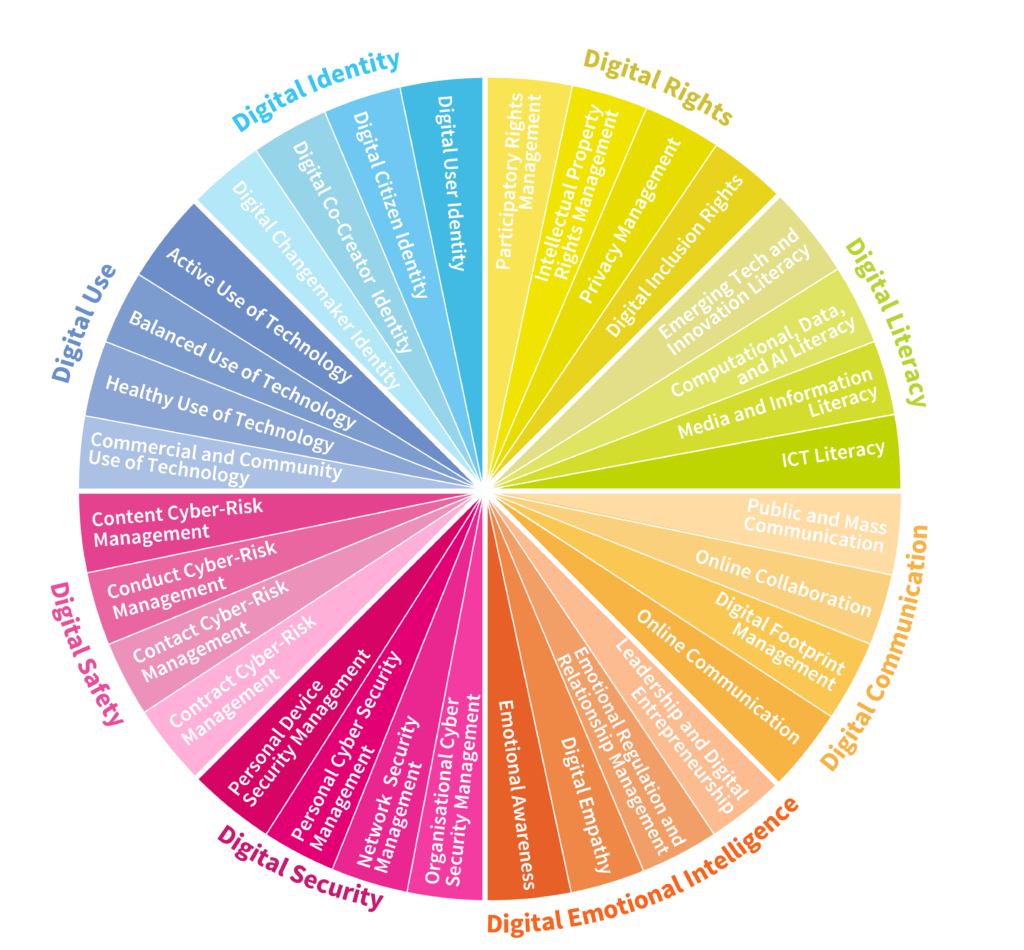
Beyond IQ and EQ, DQ (Digital Intelligence) represents critical skills needed to thrive in the digital age.
DQ is defined as “a comprehensive set of technical, cognitive, meta-cognitive, and socio-emotional competencies that are grounded in universal moral values and that enable individuals to face the challenges and harness the opportunities of digital life.”
Its framework aggregated across more than 25 prior leading frameworks about digital literacy and skills. It lays out a common language, structure, and taxonomy around digital literacy, skills, and readiness that can be benchmarked, referenced, and adopted across nations and sectors worldwide. The DQ Framework was internationally acclaimed and endorsed by the Coalition for Digital Intelligence (CDI), formed in 2018 by the OECD, IEEE SA, and DQ Institute in association with the World Economic Forum, with the commitment to promote digital literacy and digital skills around the world.
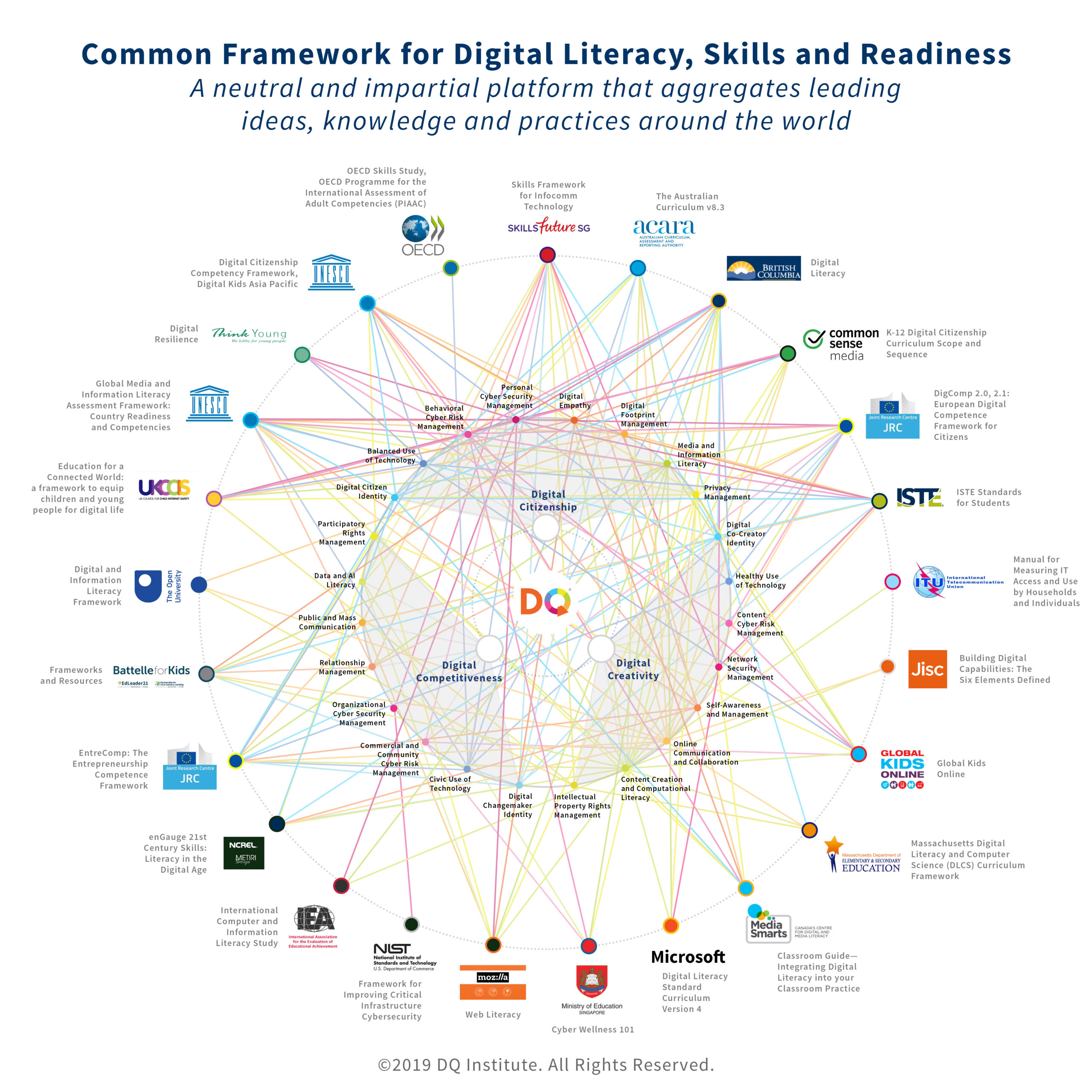
DQ 32
DQ comprises 32 digital competencies. It focuses on eight critical areas of digital life– identity, use, safety, security, emotional intelligence, literacy, communication, and rights. These eight areas can each be developed at four levels: citizenship, creativity, and competitiveness.
- Connectivity focuses on digital inclusion to ensure that individuals are connected to digital technology.
- Citizenship focuses on basic levels of skills needed to use technologies in responsible, safe, and ethical ways.
- Creativity allows problem-solving through the creation of new knowledge, technologies, and content.
- Competitiveness focuses on innovations to change communities and the economy for broad benefit.
DQ Competencies
Click on any of the numbered buttons below
|
Digital Connectivity |
|
Digital Citizenship |
|
Digital Creativity |
| Digital Competitiveness |
|
Digital Identity |
Digital Use |
Digital Safety |
Digital Security |
Digital Emotional Intelligence |
Digital Communication |
Digital Literacy |
Digital Rights |
|---|---|---|---|---|---|---|---|
| 25 Digital User Identity The ability to have a foundational understanding of one's identity as a digital user, including basic internet and digital media literacy. |
26 Active Use of Technology The ability to actively use various types of digital media and technology effectively. |
27 Content Cyber-Risk Management The ability to identify, mitigate, and manage risky content (e.g., harmful user-generated content, racist/hateful content, image-based abuse). |
28 Personal Device Security Management The ability to efficiently use strategies to protect personal digital devices. |
29 Emotional Awareness The ability to critically recognize, evaluate, and express one’s emotions in digital environments. |
30 Online Communication The ability to effectively use technology to communicate with others online. |
31 ICT Literacy The ability to efficiently use the basic functions of information and communication technologies (such as word/image/data processing productivity software, internet use, and e-mail). |
32 Digital Inclusion Rights The ability to understand one’s rights to have quality digital access across all sectors, socio-economic statuses, genders, regions, and other factors that may influence digital equity and inclusion. |
| 1 Digital Citizen Identity The ability to build and manage a healthy identity as a digital citizen with integrity. |
2 Balanced Use of Technology The ability to manage one’s life both online and offline in a balanced manner by exercising self-control to regulate screen time, multitasking, and engagement with digital media and devices. |
3 Conduct Cyber-Risk Management The ability to identify, mitigate, and manage cyber-risks (e.g., cyberbullying, harassment, and stalking) related to personal online behaviors. |
4 Personal Cyber Security Management The ability to detect cyber threats (e.g., hacking, scams, and malware) against personal data and devices, and employ appropriate security strategies and tools for protection. |
5 Digital Empathy The ability to be aware of, sensitive to, and supportive of one’s own and others' feelings, needs, and concerns online. |
6 Digital Footprint Management The ability to understand the nature of digital footprints and their real-life consequences, manage them responsibly, and actively build a positive digital reputation. |
7 Media and Information Literacy The ability to find, organize, analyze, and evaluate media and information using critical reasoning. |
8 Privacy Management The ability to handle all personal information shared online with discretion to protect one’s own and others’ privacy. |
| 9 Digital Co-Creator Identity The ability to identify and develop oneself as a co-creator within the digital ecosystem. |
10 Healthy Use of Technology The ability to understand the benefits and harms of technology on one’s mental and physical health and manage technology use while prioritizing health and well-being. |
11 Contact Cyber-Risk Management The ability to identify, mitigate, and manage risky online contact (e.g., unwanted sexual contact, offline meetings, sexual exploitation). |
12 Network Security Management The ability to detect, avoid, and manage cyber threats to cloud-based collaborative digital environments. |
13 Emotional Regulation and Relationship Management The ability to recognize and manage one's emotions in digital environments and to skillfully navigate online relationships through cooperation, conflict management, and persuasion. |
14 Online Collaboration The ability to establish clear and effective communication modes that allow expression through technology to collaborate collectively and achieve intended goals. |
15 Computational, Data, and AI Literacy The ability to synthesize, create, and produce information, media, and technology in innovative and creative ways. Additionally, the ability to generate, process, analyze, and present meaningful data, and to develop and apply artificial intelligence (AI) and related algorithmic tools and strategies for informed, optimized, and contextually relevant decision-making. |
16 Intellectual Property Rights Management The ability to understand and manage intellectual property rights (e.g., copyrights, trademarks, and patents) when using and creating content and technology. |
| 17 Digital Changemaker Identity The ability to identify and develop oneself as a competent and influential changemaker in the digital economy. |
18 Commercial and Community Use of Technology The ability to engage in commercial, civic, and/or political participation for the well-being and growth of local, national, and global communities using technology. |
19 Contract Cyber-Risk Management The ability to identify, mitigate, and manage contractual, commercial, or community cyber-risks online, including organizational attempts (e.g., embedded marketing, online propaganda, and gambling) to exploit individuals financially or through ideological persuasion. |
20 Organisational Cyber Security Management The ability to recognize, plan, and implement organizational cybersecurity defenses. |
21 Digital Leadership The ability to identify and realize opportunities for growth and value through the effective, efficient, and acceptable use of digital technologies. |
22 Public and Mass Communication The ability to communicate effectively with an online audience to exchange messages, ideas, and opinions that reflect broader business or societal discourses. |
23 Emerging Technology and Innovation Literacy The ability to identify, use, and create emerging technology and acquire innovative competencies to enhance professional life and contribute to the global economy. |
24 Participatory Rights Management The ability to understand and exercise one’s powers and rights to online participation (e.g., rights to personal data protection, freedom of expression, or the right to be forgotten) while respecting the rights of other online users. |
How the DQ Framework is connected
to the OECD's Transformative Competencies
The OECD Education 2030 Framework has identified three categories of competencies that empower individuals to transform their societies and shape their futures. These three "Transformative Competencies" are (1) creating new value, (2) reconciling tensions and dilemmas, and (3) taking responsibility. These intra-connected competencies connect with other future-readiness competencies, which have been identified by other organizations. These include "trending skills" that the WEF predicted, in their Future of Jobs 2018 Report, to be important for the workforce by 2022. Such skills include the following: Analytical thinking and innovation, Active learning and learning strategies, Creativity, originality and initiative, Technology design and programming, Critical thinking and analysis, Complex problem-solving, Leadership and social influence, Emotional intelligence, Reasoning, problem-solving and ideation, and Systems analysis and evaluation. This section provides examples of how each of the 24 DQ competencies can help develop the "trending skills" identified in the WEF Future of Jobs 2018 Report and, in turn, how they can enhance the OECD's Transformative Competencies.
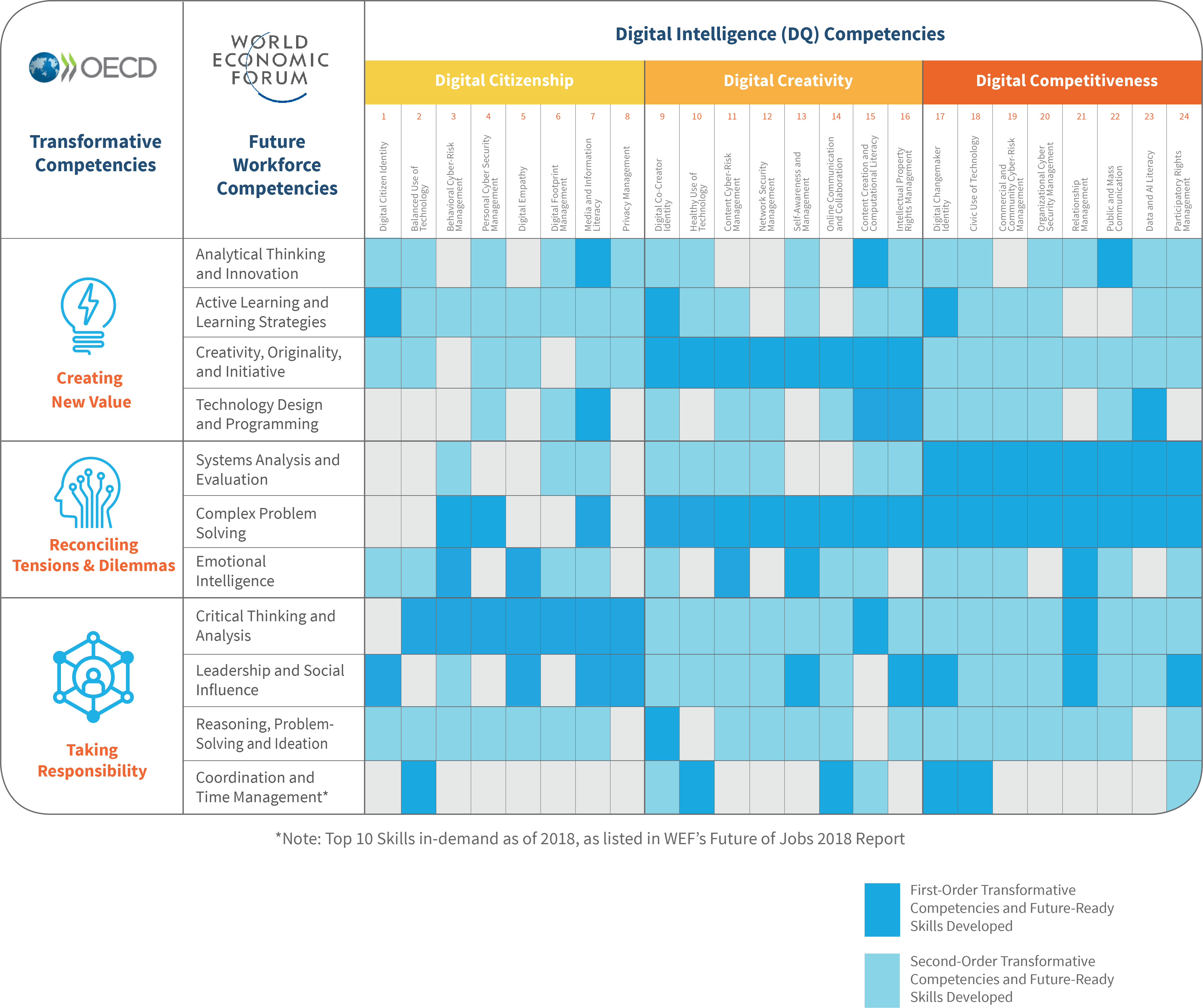
Creating New Value

- Analytical thinking and innovation
As is clear from the Digital Literacy competencies outlined above, individuals who develop and practice the knowledge, skills, attitudes, and values of Media and Information Literacy, Content Creation and Computational Literacy, and Data and Financial Literacy will be attentive to and critical of data, information, content, and technology production and actively craft new and innovative approaches. - Active learning and learning strategies
Active learning is embedded in competencies identified as Digital Identity, including the ability to learn while recognizing oneself as a life-long learner. For example, as individuals come to be identified as “Digital Changemakers,” curiosity about emerging trends within technological environments will drive awareness of existing gaps in their digital competencies and motivate efforts toward self-improvement. Moreover, individuals who identify as Digital Co-Creators will be able to develop efficient learning strategies, display an awareness of common and relevant technologies, and decide on which might best serve their purposes and needs. - Creativity, originality, and initiative
The concepts of creativity and originality have been tightly interwoven within conceptualizations of Digital Intelligence through its second level, Digital Creativity. This second level of DQ is guided by the principle of using digital technologies to resolve global challenges to achieve individual and societal well-being. Individuals who are fluent in these competencies, for example, consciously practice and develop originality of thought and a willingness to address larger community and societal challenges. - Technology design and programming
As described in the Content Creation and Computational Literacy and Intellectual Property Rights Management sections, individuals become equipped with the skills to design, develop, and adapt knowledge, content, and technology, and with characteristics, such as active learning, through their willingness to engage with evolving and advancing digital technologies.
Reconciling Tensions & Dilemmas

- Complex Problem Solving
As “Digital Citizens”, individuals become better able to understand the nuances of key debates, such as issues around data privacy, surveillance, and fake news. By understanding how technology shapes and is shaped by a wide array of factors, individuals will develop complex problem solving skills, extending their thinking and integrating digital networks and tools to develop solutions to address socioeconomic issues. - Systems analysis and evaluation
The capacity for systems analysis and evaluation has similarly been imbued in the third level of DQ, Digital Competitiveness. Guided by the principles of innovation for the improvement of humanity, individuals fluent in these eight areas will be able to apply their critical thinking skills to understand the complexity of systems, such as how technology can contribute to the levelling of inequality. In developing these macro-level perspectives, individuals can come to understand how complex systems and institutions work together in the creation and maintenance of our digital landscapes. - Emotional intelligence
Digital Emotional Intelligence forms one of the eight areas of Digital Intelligence. For individuals familiar with the competencies of Digital Empathy, Self-Awareness and Management, and Relationship Management, the building and development of one’s socio-emotional capacities and ability to think reflexively undergirds all of their experiences.
Taking Responsibility

- Critical thinking and analysis
The development of one’s capacity for critical thinking is a core ability underlying “Digital Citizenship.” Equipped with skills in Media and Information Literacy that are crucial for an age of information cascades, individuals develop their critical and analytical thinking to articulate information and content needs while simultaneously being cognizant of the dangers of disinformation and misinformation. Developed and honed through the first level of digital intelligence as part of “digital citizenship,” this capacity to discern enables individuals to independently manage their safety and security needs online. - Leadership and social influence
Captured in the very first competency-Digital Identity-digital citizens are co-creators of technology, entrepreneurs, and changemakers; they not only understand their own participation online, but they are also familiar with the inherently social and interconnected nature of the Internet. Expanded upon in the competencies identified under Digital Communication, this knowledge of the Internet empowers digital citizens with practical skills, such as understanding which methods are most effective for communication, and with socio-emotional and leadership skills developed through active collaboration to achieve specified goals. - Reasoning, problem solving and ideation
As Digital Co-creators, individuals seamlessly but intentionally integrate digital technologies into their everyday lives. With this intention, they will be able to build higher-order thinking and reasoning skills that aid in their capacity to explore their identity both on- and offline, to understand their contributions in a wider perspective, and to connect with others. - Coordination and time management
Active collaboration-identified and highlighted as Online Communication and Collaboration-not only enables individuals to develop key leadership skills but also skills in project coordination and management. Starting with screen time management, identified in the Balanced Use of Technology section, such productivity skills are enhanced by one’s identification as a Digital Changemaker, where the development of project management skills, such as time management and resource delegation, thoroughly aids in the conceptualization and follow-through of group-based projects.
How DQ Framework Contributes to
OECD's 11 Areas of Well-Being and U.N. SDG
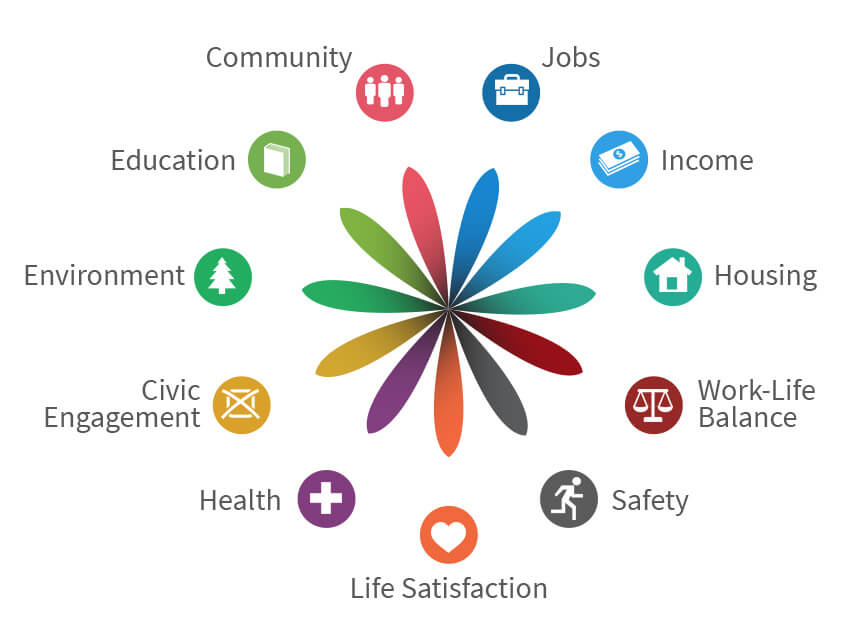
The ultimate goal of the DQ Framework is to guide digital practices towards achieving individual and societal well-being across all aspects of one's life.
The OECD's Better Life Initiative identified the following 11 areas of well-being: income, wealth, jobs, earnings, housing, quality of life, including health, civic engagement, social connections, education, security, life satisfaction, and the environment. These 11 areas of well-being, in turn, contribute to achieving the 17 UN Sustainable Development Goals (UN SDGs).
The UN SDGs focus on 17 societal dimensions, including ending poverty and promoting prosperity, well-being, and protection of the planet.
With the goal of advancing the UN SDGs, we adopted the OECD's 11 indicators of well-being as a guide for pinpointing areas where interventions can be made to equip individuals with digital intelligence.
1No Poverty
End poverty in all its forms everywhere
2Zero Hunger
End hunger, achieve food security and improved nutrition and promote sustainable agriculture
3Good Health
& Well-Being
Ensure healthy lives and promote well-being for all at all ages
4Quality Education
Ensure inclusive and equitable quality education and promote lifelong learning opportunities for all
5Gender Equality
Achieve gender equality and empower all women and girls
6Clean water
& Sanitation
Ensure availability and sustainable management of water and sanitation for all
7Affordable &
Clean Energy
Ensure access to affordable, reliable, sustainable and modern energy for all
8Decent Work &
Economic Growth
Promote sustained, inclusive and sustainable economic growth, full and productive employment and decent work for all
9Industry,
Innovation &
Infastructure
Build resilient infrastructure, promote inclusive and sustainable industrialization and foster innovation
10Reduced
Inequalities
Reduce inequality within and among countries
11Sustainable
Cities &
Communities
Make cities and human settlements inclusive, safe, resilient and sustainable
12Responbible
Consumption &
Production
Ensure sustainable consumption and production patterns
13Climate Action
Take urgent action to combat climate change and its impacts*
14Life Below Water
Conserve and sustainably use the oceans, seas and marine resources for sustainable development
15Life on Land
Protect, restore and promote sustainable use of terrestrial ecosystems, sustainably manage forests, combat desertification, and halt and reverse land degradation and halt biodiversity loss
16Peace, Justice
& Strong
Institutions
Promote peaceful and inclusive societies for sustainable development, provide access to justice for all and build effective, accountable and inclusive institutions at all levels
17Partnership
for the Goals
Strengthen the means of implementation and revitalize the global partnership for sustainable development
| OECD Well-Being Indicators |
Digital Intelligence (DQ)Competencies | U.N. Sustainable Development Goal |
|---|---|---|
| Income | Ending poverty around the world through the use and application of technology with digital intelligence. | Goal 1: No Poverty |
| Ending hunger, achieve food security and improved nutrition, and promote sustainable agriculture through the use of technology with digital intelligence. | Goal 2: Zero Hunger | |
| Health | Ensuring healthful living and promote well-being in one's use of technology with digital intelligence. | Goal 3: Health and Well-Being |
| Achieving gender equality by empowering all women and girls to confidently and competently use technology and digital intelligence. | Goal 5: Gender Equality | |
| Education | Ensuring inclusive and equitable quality digital intelligence education and promote life-long learning opportunities that adapt to an ever-evolving digital landscape. | Goal 4: Quality Education |
| Housing | Promoting technological innovations through digital intelligence to address and ensure the availability of sustainable water and sanitation management for all. | Goal 6: Clean Water and Sanitation |
| Environment | Using technology with digital intelligence to ensure access to affordable, reliable, and sustainable energy for all. | Goal 7: Affordable and Clean Energy |
| Jobs | Contributing to sustained, inclusive, and sustainable economic growth, full and productive employment, and decent work by upskilling for all. | Goal 8: Decent Work and Economic Growth |
| Building resilient digital infrastructure, promoting inclusive and sustainable industrialization and innovation by fostering ethical cyber security and safety skills among citizens through digital intelligence. | Goal 9: Industry, Innovation, and Infrastructure | |
| Life Satisfaction | Reducing inequality within and among countries by supporting initiatives that address digital divides in access, skills, and infrastructure, and by providing affirmative action for those already vulnerable communities. | Goal 10: Reduced Inequalities |
| Civic Engagement | Ensuring sustainable consumption and production patterns by using technology with digital intelligence to bring about equitable, just, and sustainable global supply chains. | Goal 12: Responsible Consumption and Production |
| Environment | Applying digital intelligence to make cities and human settlements safer, more inclusive, more resilient, and more sustainable through the use of clean and sustainable technology. | Goal 11: Sustainable Cities and Communities |
| Guiding one's use of technology with digital intelligence to take urgent action to combat climate change and its impacts. | Goal 13: Climate Action | |
| Using technology with digital intelligence to conserve and sustainably use oceans, seas, and marine resources for sustainable development. | Goal 14: Life Below Water | |
| Using technology with digital intelligence to protect, restore, and promote the sustainable use of terrestrial ecosystems, sustainably manage forests, combat desertification, and halt and reverse land degradation and biodiversity loss. | Goal 15: Life on Land | |
| Safety | Promoting peaceful and inclusive societies for sustainable development, providing access to justice for all, and building effective, accountable, and inclusive institutions at all levels by empowering communities with digital intelligence to reduce and mitigate evolving cyber risks and threats. | Goal 16: Peace and Justice Strong Institutions |
| Community | Strengthening technology by implementing digital intelligence and revitalizing global partnerships for sustainable development. | Goal 17: Partnership for the Goals |
Evolution of the DQ Global Standards
iZ Hero: Collaboration with NTU/NIE
The Singapore Science Centre, a national science museum, hosted the iZ Hero Cyberwellness exhibition, a precursor to DQ WorldTM . In collaboration with Nanyang Technological University and National Institute of Education, Singapore, the iZ Hero program has been scientifically validated and is based on the transmedia adventure-based storytelling to motivate children to engage in the cyberwellness program and to adopt safe attitudes and behaviors related to digital technology use.
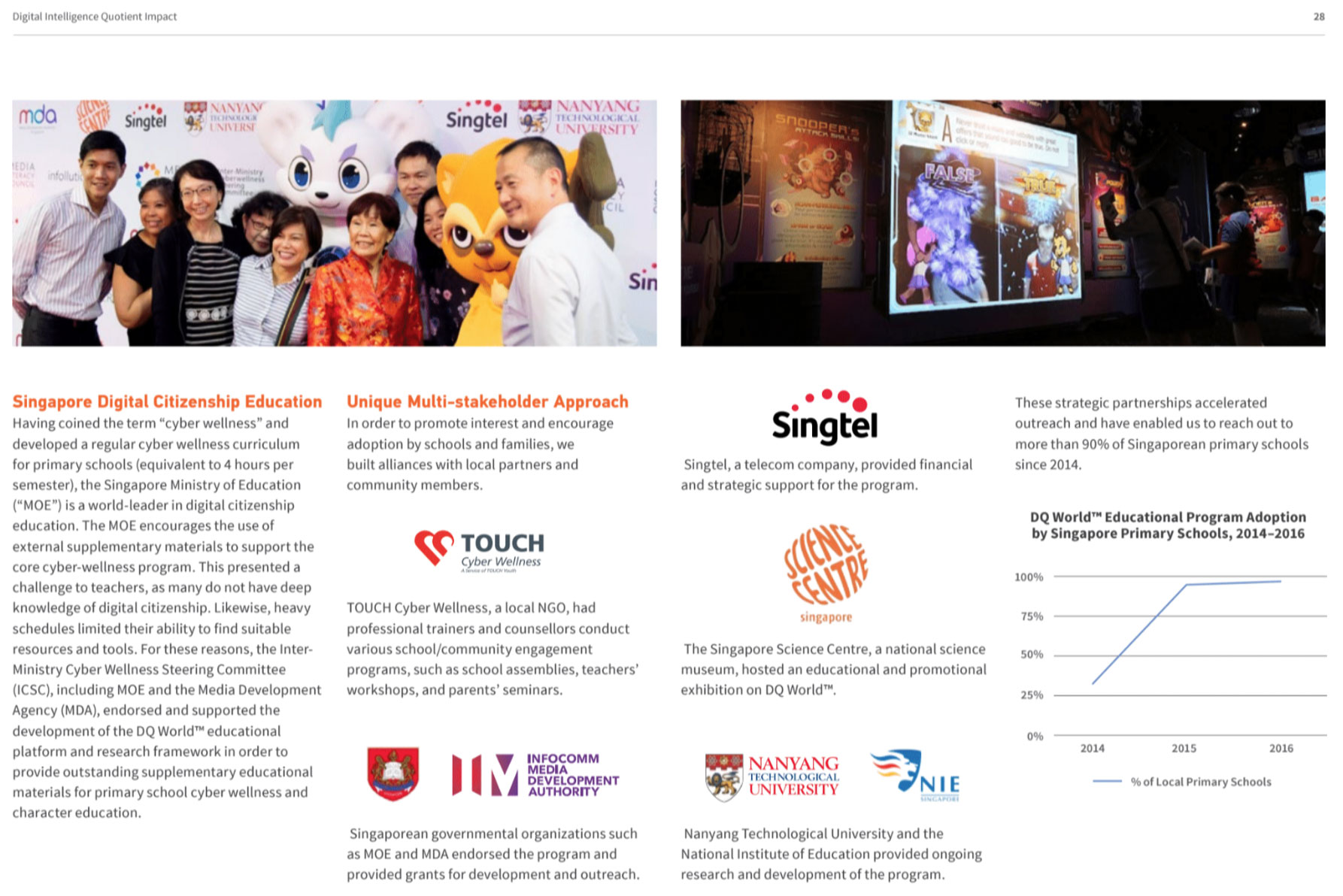
Introduced DQ First 8 Digital Citizenship Competencies
This is our pioneering initiative that aims to empower children to become smart and responsible digital citizens. We outlined a set of 8 competencies that enable one to make discerning and deliberate choices that maximize technological benefits while mitigating cyber risks.
Read:
2017 Aug Whitepaper
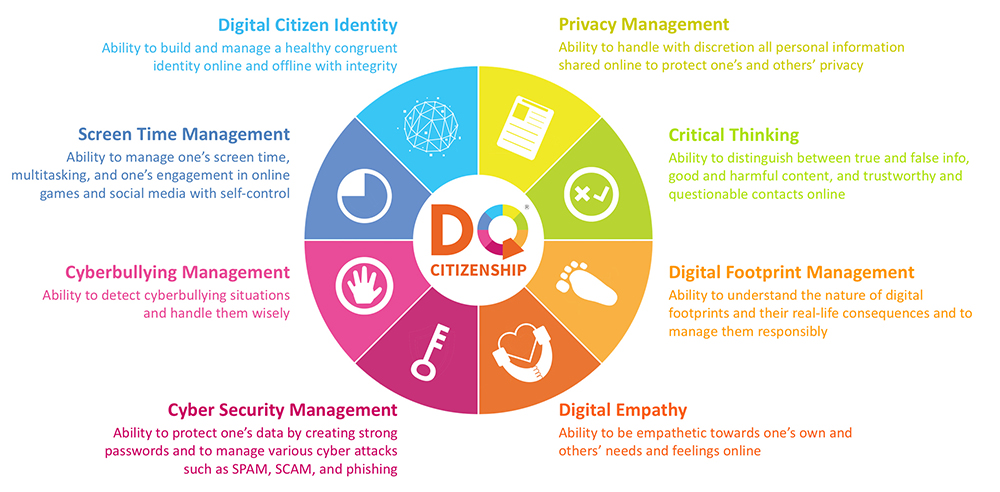
Published DQ Framework with 24 Competencies
We designed a systematic structure comprising 8 “areas” and 3 “levels” of digital intelligence, resulting in an 8x3 matrix of 24 competencies. Each of these competencies can be further differentiated by a selection of knowledge, skills, attitudes, and values.
Read:
2018 Sep WEF Announcement
2019 Mar DQ Global Standards Report
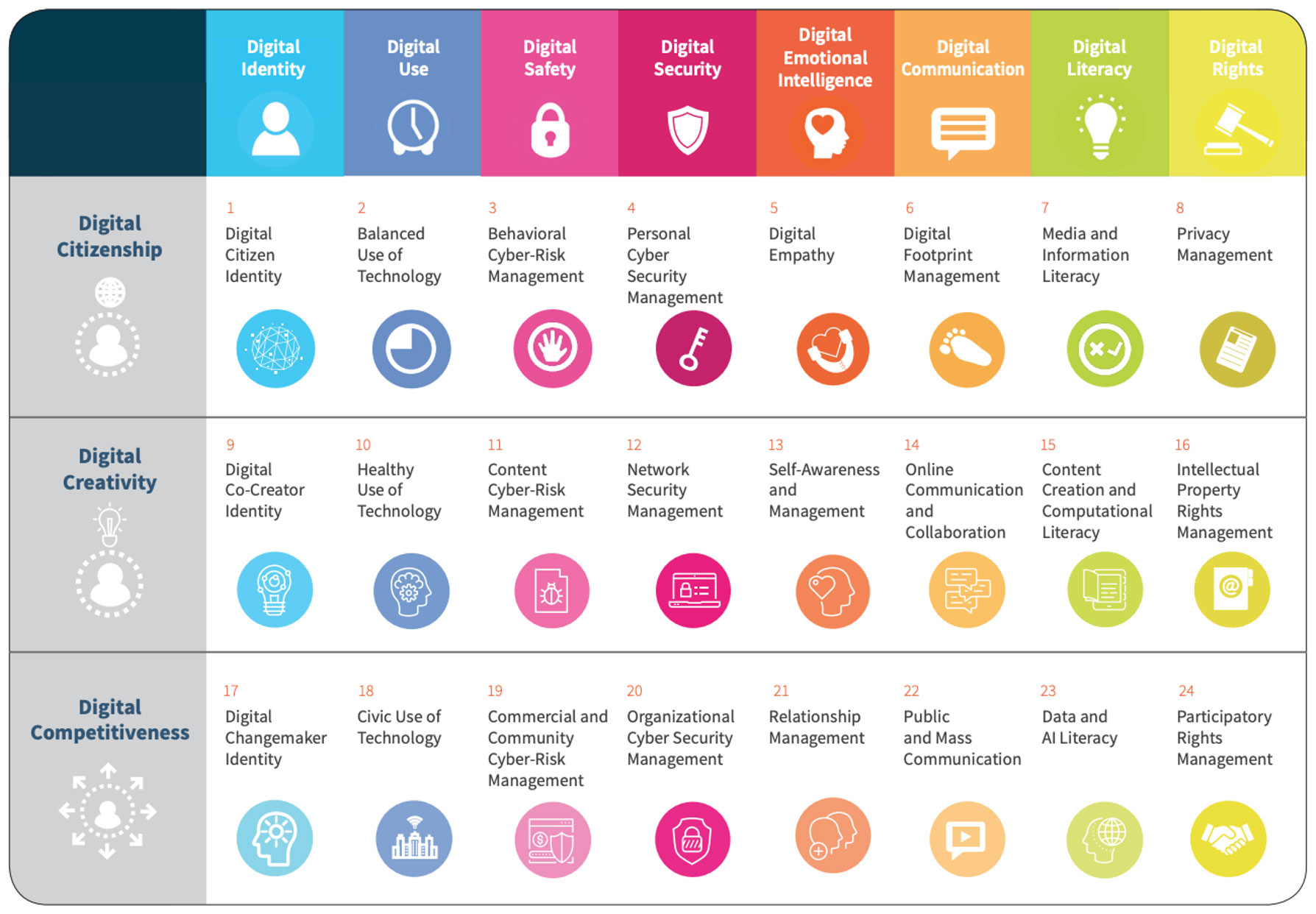
Became a IEEE Global Standard
DQ was officially approved by the IEEE Standards Association as the world’s first global standard related to digital literacy, digital skills, and digital readiness.
Read:
2020 Sep IEEE 3527.1™ Standard
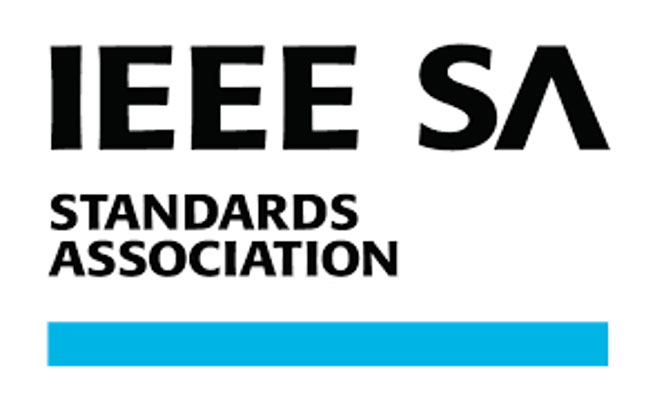
Introduced 4th Maturity Level with 8 New Competencies and Microcredentials
We introduced a new ‘Digital Connectivity’ maturity level, as the foundation for inclusive digital transformations and to bridge the global digital gap. This level adds eight new competencies to Framework 1.0 and is a prerequisite for the existing three levels. We also developed an interoperable skill codification system called Global Standard Microcredentials (GSM) for each of the 32 competencies, incorporating Artificial Intelligence and Sustainability. GSMs can support a range of programs, from fostering digital literacy in educational institutions to enhancing digital skills in companies and organizations.
Read:
2023 Nov Whitepaper
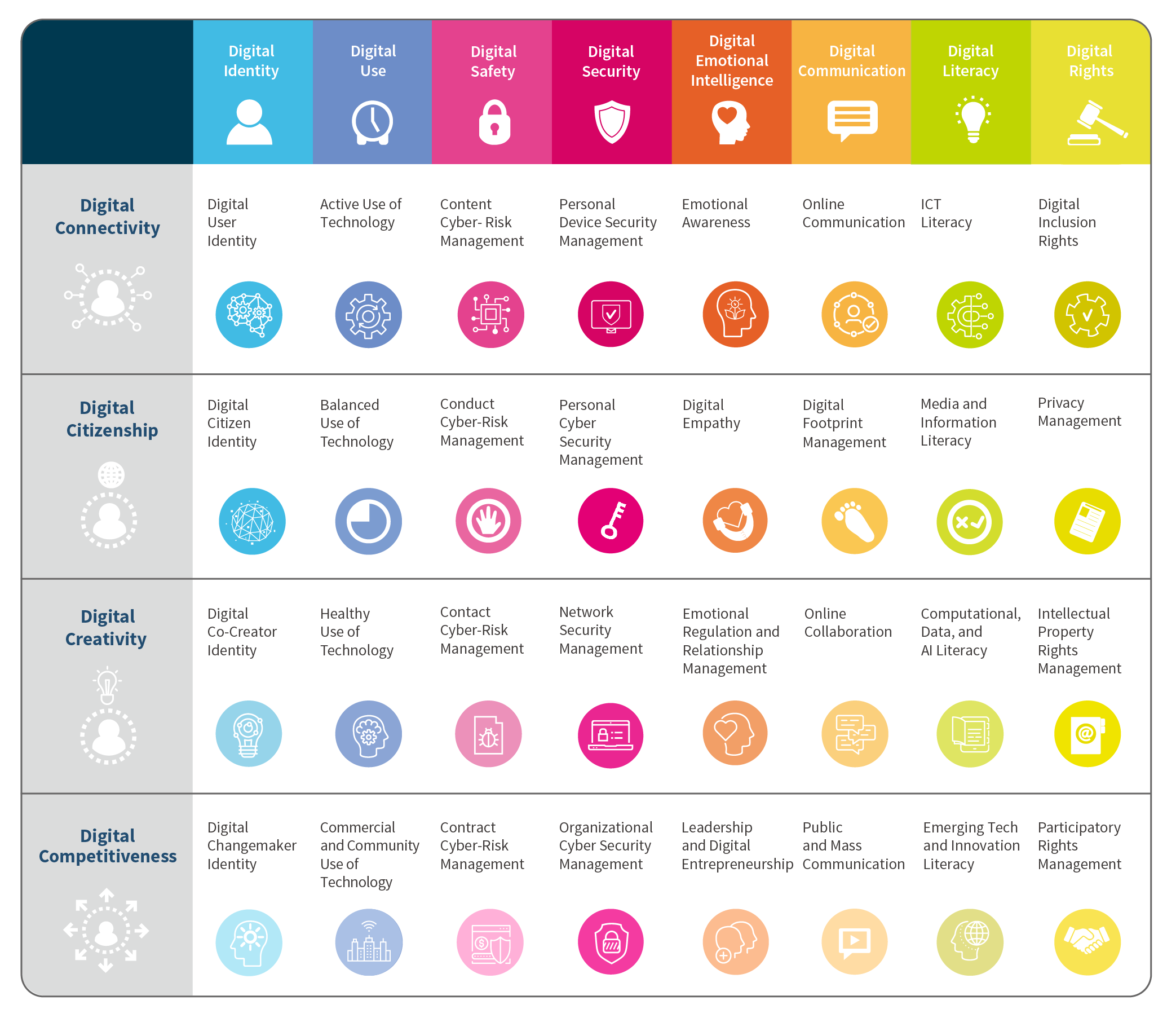
| DQ MB | Description of DQ MB | Related Top 3 Future-Readiness Skills |
Future-Readiness
How Can Individuals Build Future-Readiness Skills?
DQ 32 Competencies are a practical way to build future-readiness skills step-by-step.
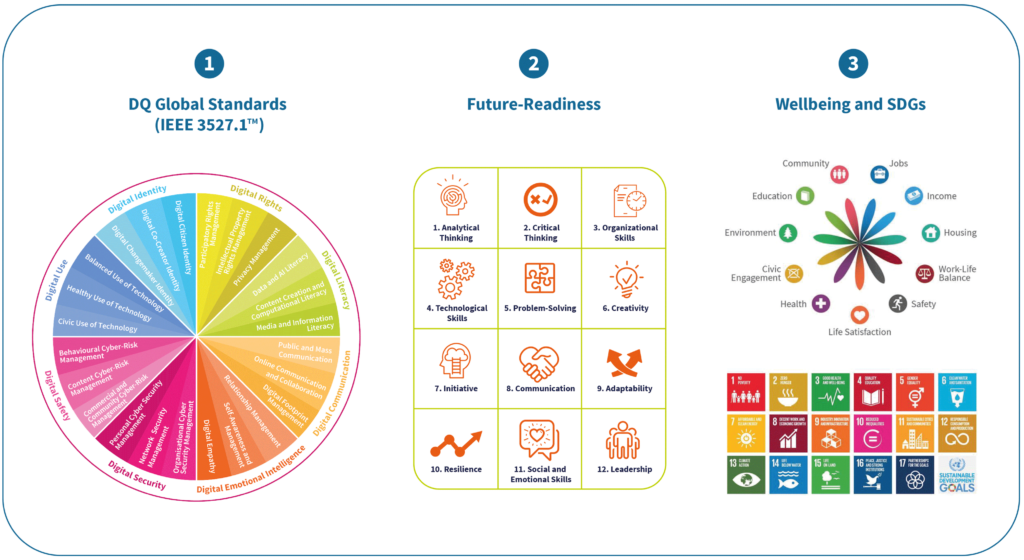
The following 12 skills are commonly identified as important future-readiness skills for individuals to obtain in order to achieve their life well-being as well as their career development based various reports and literatures developed by the international organizations (e.g. OECD, the World Economic Forum), the private sectors (e.g. Accenture, Mckinsey), and the civic sectors (e.g. Ashoka).
Even though we agree with these frameworks for future-readiness, it may still get clearer to individuals or trainers about HOW to build these skills.
The DQ 32 Competencies, taken together, will develop many of the building blocks underlying all of these skills.
12 Future-Readiness Skills
[WEF Top 15 Skills for 2025]
Read more
[Fusion Skills]
[WEF Top 15 Skills for 2025]
[Tech Know-How – Fundamental-level Skill, Accenture]
[Tech Know-How – Medium-level Skill, Accenture]
[Tech Know-How – Mature-level Skill, Accenture]
[Create and Solve – Mature-level Skill – Accenture]
Read more
[Fusion Skills]
[Create and Solve – Mature-level Skill, Accenture]
Read more
[WEF Top 15 Skills for 2025]
Read more
[Fusion Skills]
Read more
[Fusion Skills]
[WEF Top 15 Skills for 2025]
[Learn to Earn – Fundamental-level Skill, Accenture]
[Learn to Earn – Medium-level Skill, Accenture]
[Learn to Earn – Medium-level Skill, Accenture]
[Learn to Earn – Medium-level Skill, Accenture]
[Create and Solve – Medium-level Skill, Accenture]
[We’Q- Medium-level Skill2- Accenture]
[Learn to Earn- Mature level Skill, Accenture]
[Learn to Earn- Mature level Skill, Accenture]
Read more
[WEF Top 15 Skills for 2025]
Read more
[WEF Top 15 Skills for 2025]
[Tech Know-How – Fundamental-level Skill, Accenture]
[Tech Know-How- Medium-level Skill, Accenture]
[Tech Know-How- Medium-level Skill, Accenture]
[Tech Know-How- Medium-level Skill, Accenture]
[Tech Know-How- Medium-level Skill, Accenture]
[Tech Know-How- Medium level Skill, Accenture]
[Tech Know-How — Medium level Skill, Accenture]
Read more
[Fusion Skills]
[Create and Solve- Mature level Skill – Accenture]
Read more
[WEF Top 15 Skills for 2025]
[WEF Top 15 Skills for 2025]
[Create and Solve- Fundamental-level Skill – Accenture]
Read more
[Fusion Skills]
[Create and Solve – Fundamental-level Skill, Accenture]
Read more
[WEF Top 15 Skills for 2025]
[Cultivate a Growth Mindset – Fundamental-level Skill, Accenture]
[Cultivate a Growth Mindset- Medium-level Skill, Accenture]
[OECD Education 2030 Framework, Transformative Competency]
[Fusion Skills]
Read more
[WEF Top 15 Skills for 2025]
[Learn to Earn – Fundamental-level Skill, Accenture]
[Create and Solve- Mature level Skill – Accenture]
[Cultivate a Growth Mindset- Medium-level Skill, Accenture]
Read more
[Fusion Skills]
Read more
[Fusion Skills]
[We’Q– Fundamental-level Skill, Accenture]
[Fusion Skills]
[We’Q– Fundamental-level Skill, Accenture]
[We’Q– Fundamental-level Skill, Accenture]
[We’Q– Fundamental-level Skill, Accenture]
[We’Q- Medium-level Skill, Accenture]
[We’Q- Medium-level Skill, Accenture]
Read more
[Fusion Skills]
Read more
[WEF Top 15 Skills for 2025]
[Cultivate a Growth Mindset – Medium level Skill, Accenture]
[Cultivate a Growth Mindset- Medium-level Skill, Accenture]
[Cultivate a Growth Mindset – Fundamental-level Skill, Accenture]
[Cultivate a Growth Mindset – Fundamental-level Skill, Accenture]
[Cultivate a Growth Mindset – Fundamental-level Skill, Accenture]
[Cultivate a Growth Mindset – Fundamental-level Skill, Accenture]
[Cultivate a Growth Mindset – Fundamental-level Skill, Accenture]
[Cultivate a Growth Mindset – M2, Accenture]
[Cultivate a Growth Mindset- Mature level Skill, Accenture]
Read more
[Fusion Skills]
[Cultivate a Growth Mindset- Mature level Skill, Accenture]
Read more
[WEF Top 15 Skills for 2025]
[Cultivate a Growth Mindset- Medium-level Skill, Accenture]
[OECD Education 2030 Framework, Transformative Competency]
Read more
[WEF Top 15 Skills for 2025]
Read more
[We’Q- Medium-level Skill- Accenture]
[Create and Solve– Fundamental-level Skill, Accenture]
[We’Q- Medium-level Skill- Accenture]
[We’Q- Medium-level Skill- Accenture]
[WEF Top 15 Skills for 2025]
[We’Q- Mature level Skill – Accenture]
[We’Q- Medium-level Skill- Accenture]
[Cultivate a Growth Mindset- Mature level Skill, Accenture]
Read more
[WEF Top 15 Skills for 2025]
[We’Q- Medium-level Skill- Accenture]
Read more
[WEF Top 15 Skills for 2025]
[Create and Solve – Medium-level Skill – Accenture]
[Create and Solve – Medium-level Skill – Accenture]
[We’Q- Medium-level Skill- Accenture]
[We’Q- Mature level Skill- Accenture]
[OECD Education 2030 Framework, Transformative Competency]
Read more
Source
World Economic Forum, The Future of Jobs Report 2020
https://www.weforum.org/reports/the-future-of-jobs-report-2020
Accenture, New Skills Now – Inclusion in the Digital Economy
https://www.accenture.com/_acnmedia/pdf-63/accenture-new-skills-now-inclusion-in-the-digital.pdf
McKinsey Global Institute, Skill Shift Automation and the Future of the Workforce
The City of London, Fusion Skills
https://www.screenskills.com/media/1551/fusion_report.pdf
OECD Education 2030 Framework
https://www.oecd.org/education/2030-project/
https://www.oecd.org/education/2030/E2030%20Position%20Paper%20(05.04.2018).pdf
Well-Being and SDGs
How DQ Framework Contributes to
OECD’s 11 Areas of Well-Being and U.N. SDG
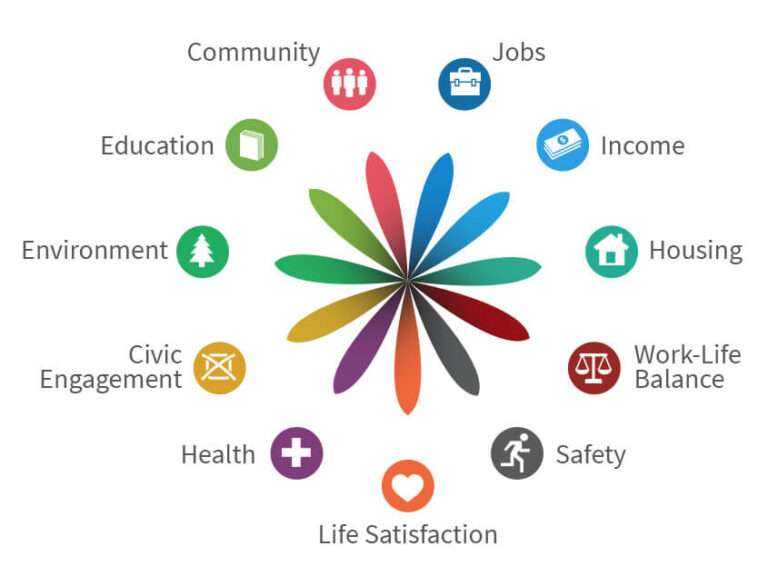
The ultimate goal of the DQ Framework is to guide digital practices towards achieving individual and societal well-being across all aspects of one’s life.
The OECD’s Better Life Initiative identified the following 11 areas of well-being: income, wealth, jobs, earnings, housing, quality of life, including health, civic engagement, social connections, education, security, life satisfaction, and the environment. These 11 areas of well-being, in turn, contribute to achieving the 17 UN Sustainable Development Goals (UN SDGs).
The UN SDGs focus on 17 societal dimensions, including ending poverty and promoting prosperity, well-being, and protection of the planet.
With the goal of advancing the UN SDGs, we adopted the OECD’s 11 indicators of well-being as a guide for pinpointing areas where interventions can be made to equip individuals with digital intelligence.
| OECD Well-Being Indicators |
Digital Intelligence (DQ)Competencies | U.N. Sustainable Development Goal |
|---|---|---|
| Income | Ending poverty around the world through the use and application of technology with digital intelligence. | Goal 1: No Poverty |
| Ending hunger, achieve food security and improved nutrition, and promote sustainable agriculture through the use of technology with digital intelligence. | Goal 2: Zero Hunger | |
| Health | Ensuring healthful living and promote well-being in one's use of technology with digital intelligence. | Goal 3: Health and Well-Being |
| Achieving gender equality by empowering all women and girls to confidently and competently use technology and digital intelligence. | Goal 5: Gender Equality | |
| Education | Ensuring inclusive and equitable quality digital intelligence education and promote life-long learning opportunities that adapt to an ever-evolving digital landscape. | Goal 4: Quality Education |
| Housing | Promoting technological innovations through digital intelligence to address and ensure the availability of sustainable water and sanitation management for all. | Goal 6: Clean Water and Sanitation |
| Environment | Using technology with digital intelligence to ensure access to affordable, reliable, and sustainable energy for all. | Goal 7: Affordable and Clean Energy |
| Jobs | Contributing to sustained, inclusive, and sustainable economic growth, full and productive employment, and decent work by upskilling for all. | Goal 8: Decent Work and Economic Growth |
| Building resilient digital infrastructure, promoting inclusive and sustainable industrialization and innovation by fostering ethical cyber security and safety skills among citizens through digital intelligence. | Goal 9: Industry, Innovation, and Infrastructure | |
| Life Satisfaction | Reducing inequality within and among countries by supporting initiatives that address digital divides in access, skills, and infrastructure, and by providing affirmative action for those already vulnerable communities. | Goal 10: Reduced Inequalities |
| Civic Engagement | Ensuring sustainable consumption and production patterns by using technology with digital intelligence to bring about equitable, just, and sustainable global supply chains. | Goal 12: Responsible Consumption and Production |
| Environment | Applying digital intelligence to make cities and human settlements safer, more inclusive, more resilient, and more sustainable through the use of clean and sustainable technology. | Goal 11: Sustainable Cities and Communities |
| Guiding one's use of technology with digital intelligence to take urgent action to combat climate change and its impacts. | Goal 13: Climate Action | |
| Using technology with digital intelligence to conserve and sustainably use oceans, seas, and marine resources for sustainable development. | Goal 14: Life Below Water | |
| Using technology with digital intelligence to protect, restore, and promote the sustainable use of terrestrial ecosystems, sustainably manage forests, combat desertification, and halt and reverse land degradation and biodiversity loss. | Goal 15: Life on Land | |
| Safety | Promoting peaceful and inclusive societies for sustainable development, providing access to justice for all, and building effective, accountable, and inclusive institutions at all levels by empowering communities with digital intelligence to reduce and mitigate evolving cyber risks and threats. | Goal 16: Peace and Justice Strong Institutions |
| Community | Strengthening technology by implementing digital intelligence and revitalizing global partnerships for sustainable development. | Goal 17: Partnership for the Goals |
1No Poverty
End poverty in all its forms everywhere
2Zero Hunger
End hunger, achieve food security and improved nutrition and promote sustainable agriculture
3Good Health
& Well-Being
Ensure healthy lives and promote well-being for all at all ages
4Quality Education
Ensure inclusive and equitable quality education and promote lifelong learning opportunities for all
5Gender Equality
Achieve gender equality and empower all women and girls
6Clean water
& Sanitation
Ensure availability and sustainable management of water and sanitation for all
7Affordable &
Clean Energy
Ensure access to affordable, reliable, sustainable and modern energy for all
8Decent Work &
Economic Growth
Promote sustained, inclusive and sustainable economic growth, full and productive employment and decent work for all
9Industry,
Innovation &
Infastructure
Build resilient infrastructure, promote inclusive and sustainable industrialization and foster innovation
10Reduced
Inequalities
Reduce inequality within and among countries
11Sustainable
Cities &
Communities
Make cities and human settlements inclusive, safe, resilient and sustainable
12Responbible
Consumption &
Production
Ensure sustainable consumption and production patterns
13Climate Action
Take urgent action to combat climate change and its impacts*
14Life Below Water
Conserve and sustainably use the oceans, seas and marine resources for sustainable development
15Life on Land
Protect, restore and promote sustainable use of terrestrial ecosystems, sustainably manage forests, combat desertification, and halt and reverse land degradation and halt biodiversity loss
16Peace, Justice
& Strong
Institutions
Promote peaceful and inclusive societies for sustainable development, provide access to justice for all and build effective, accountable and inclusive institutions at all levels
17Partnership
for the Goals
Strengthen the means of implementation and revitalize the global partnership for sustainable development
Digital Parenting
Parents, Let's set the Standards.
We know parenting in this digital age is difficult. It’s easy for parents to feel intimidated or “out of the loop” when it comes to technology and digital media but relax, you don’t have to be a technology expert. There are three digital parenting principles you can take to set the standards for our children’s online safety and digital citizenship:
- PM1: Family Media Boundary – Parents have clear family tech rules and principles to provide children proper protection and guidance.
- PM2: Parental Engagement – Parents engage in open and supportive active mediation to minimize negative effects and maximize positive effects of media use. Parents can nurture family values in children through technology, support children’s social and emotional growth, and empower them to make the right choices online.
- PM3: Family Network – Parents set a healthy digital environment for children – from connectivity, support network to seeking help as needed based on knowledge on tech trends and their impact on children.
Let’s make our families digitally ready. We can improve the standards in our children’s digital lives and help them use technology wisely.
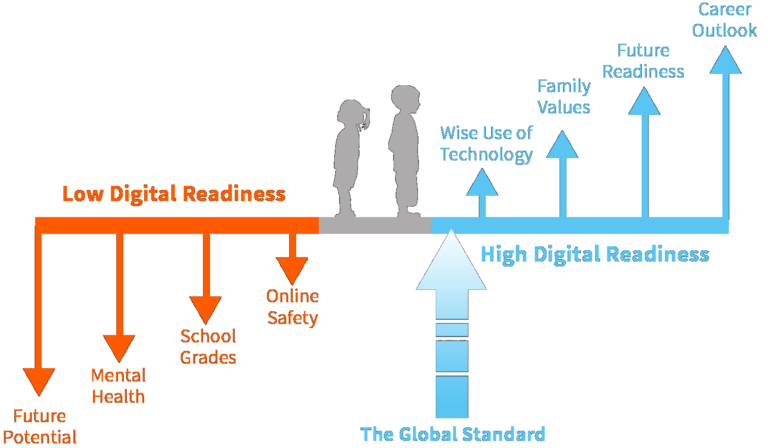
Family Media Boundary
Family Tech Agreement
Limit-Setting
Mutual Approval
Tech Readiness
Parental Engagement
Socioemotional Growth
Cyber-Safety Conversation
Parents engage in open and supportive active mediation. It involves proactively talking with children about their favourite apps, games, or websites and discussing various aspects of cyber-risks (such as privacy invasion, cyber-bullying, gaming addiction, etc).
Parents share media activities with their children as part of family life. They engage together by viewing the same TV shows or movies, playing the same games, or browsing the Internet to build trust and share media experiences. Parents keep lines of communication open while asking about children’s online experiences, whether they are having any issues.
Parents reassure their children that you are doing everything possible to stay safe and they can always come to you, no matter what.
Advanced Active Mediation
Active mediation goes beyond simply stating opinions about media, but uses questions to get children to consider why things are depicted how they are, whose point of view is shown/not shown, what the motivations of the writers may be, what the effects of viewing these types of portrayals may be, etc. This helps children learn to evaluate media messages more critically.
If parents co-view/co-play with children, they also use this time as a way to have these discussions. This allows parents to discuss and share their family’s values by using media content as a natural springboard for discussion.
Parents actively ask children’s opinion and help children think about the subliminal message, hidden agenda of media content, and its creation process.
Parents can discuss difficult issues such as relationships, sex, aggression, etc. to help children learn how to seek situations that will make them happy and healthy.
Family Network
Family Tech Use
Parents provide good digital access to children with an understanding of their own and their children's digital use habits at home (e.g. how many devices, what device their children connect on which network).
Technology Impact
Parents understand the trends and research about benefits of technology as well as potential risks of technology.
They understand how technology affects children’s well-being and development such as brain development, school grades, and mental health.
Support Network
Parents develop a good support and protection network around their children. It begins with having consistent digital parenting policies among all caregivers within their house (e.g., partner, grandparents, babysitter, etc).
Parents proactively work with school teachers related to their online schooling and cyber-protection.
Parents know when and how to seek external helps including a school counsellor, psychologist, police, or other professional experts as necessary.
Collaborations

2021 World Bank: Enhanced Digital Skills for Lifelong Learning
Collaborators: World Bank Europe and Central Asia , Ministry of Education and Science in the Kyrgyz RepublicAim: This project aims to assess, build capacity, and empower schools and teachers to enhance their delivery of digital education and literacy for students’ lifelong learning and readiness in a global knowledge-based economy.
Pillar: Digital Education for Life-Long Learning
Download the Abstract of the Report: 5-Step-Strategy for Building National Digital Skills Roadmap

2021 Singtel: Digital Enablement
Collaborators: Singtel
Aim: COVID-19 has heightened the urgency to support all citizens of Singapore in an inclusive way – including seniors, SMEs, social sectors, and persons with disabilities with digital skills. It is especially important for them to know how to deal with unintended consequences in the digital world exacerbated by COVID-19. Singtel is developing, in collaboration with the DQ Institute the “Digital Enablement Impact Framework” to understand and measure its different commercial and social efforts with various partners to enhance citizens’ digital intelligence.
Pillar: Digital Enablement

2021 Singapore SkillsFuture, Gnowbe: Workforce Digital Skills
Collaborators: Singapore SkillsFuture, Gnowbe
Aim: The DQ Institute has developed the DQ Assessment, in collaboration with Singapore SkillsFuture, to serve as a common measurement and analytic tool for digital skills based on the DQ Global Standards and global benchmark. All the data collected from the DQ Assessment is included in the Global DQ Databank that produces the DQ Index. Moreover, he DQ Institute is collaborating with Gnowbe in aligning their Micro-learning Courses (MLCs) that are focused on developing future-ready skills with the DQ Global Standards. This collaboration will further enhance the relevance, credibility and accessibility of micro-badges for digital skills globally and will support Gnowbe’s microlearning and micro-authoring platform to enable more organizations in automating and quickly scaling access to digital skills micro-badges to include those without access to computers via smartphone.
Pillar: Workforce Digital Skills
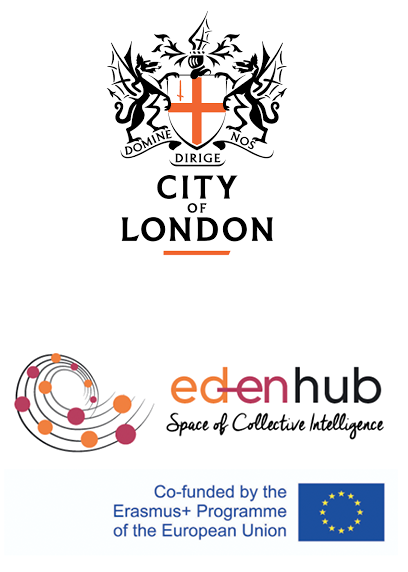
2021 City of London, Ed-En Hub: Workforce Digital Skills
Collaborators: City of London, Ed-En Hub
Aim: ED-EN HUB is an Erasmus+ project co-financed by the European Union and developed by a consortium made up of 8 institutions from 5 different European countries. It aims to create, test, and diffuse collaborative education-enterprise approaches for the identification, development, and assessment of emerging skill gaps, with a focus on transversal and transferable competences.
Pillar: Workforce Digital Skills
A toolkit for the joint development of transversal and transferable competences:

Link: http://edenhub.eu/
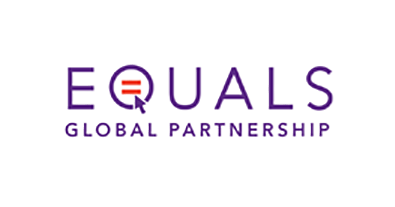
2020 EQUALS: Gender Digital Skills Gap
Collaborator: EQUALS Digital Skills Coalition
Aim: This project aims to develop a strategy to close the gender digital skills gap through a multi-stakeholder collaboration.
Pillar: Digital Equity
Visit: EQUALS website
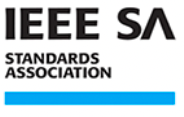
2020 IEEE Standardization for the DQ Global Standards
Collaborators: IEEE Standard Association, Singtel, Singapore SkillsFuture, Korea IFEZ (Incheon Free Economic Zone)
Aim: This project aims to develop the IEEE Standards for digital literacy, digital skills and digital readiness based on the 2019 DQ Global Standards Report.
Read: “New Standard Will Help Nations Accelerate Digital Literacy and Digital Skills Building”

